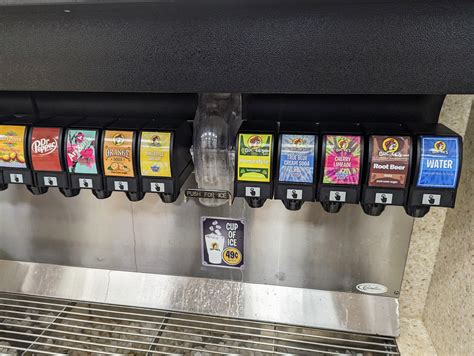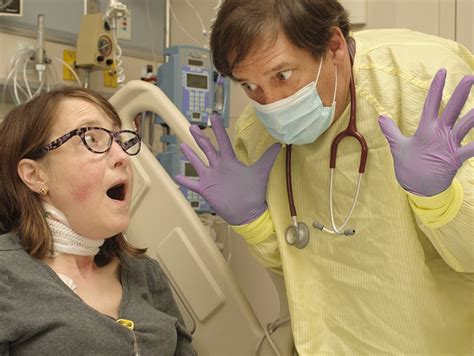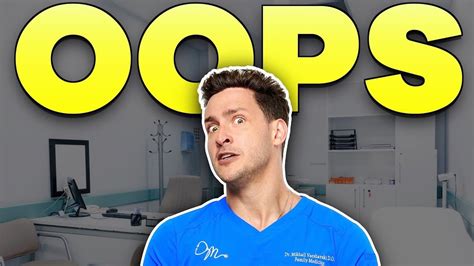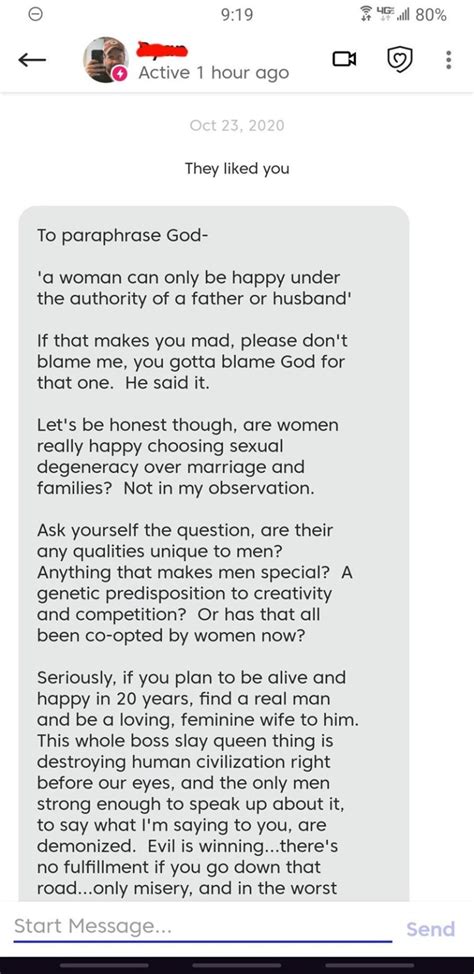![Buc-Ee's Soda Desert: Why [Soda Brand] Is MIA](https://tse1.mm.bing.net/th?q=Buc-Ee's%20Soda%20Desert:%20Why%20[Soda%20Brand]%20Is%20MIA.png)
Buc-ee’s, the beloved Texas-based travel center chain, is notably absent of Dr Pepper, leaving many customers wondering why the popular soda is unavailable at its locations. Despite Dr Pepper’s strong Texas roots and widespread availability throughout the state, the convenience store giant has chosen not to stock the beverage, a decision that has sparked considerable debate and speculation among Buc-ee’s enthusiasts.
Buc-ee’s, renowned for its clean restrooms, vast selection of snacks, and Texas-themed merchandise, has become a cultural phenomenon. With locations dotting major highways across the state and expanding into other states, the chain attracts millions of travelers annually. The absence of Dr Pepper, a drink deeply ingrained in Texas culture, is particularly puzzling to many, especially given the store’s extensive beverage offerings.
According to Buc-ee’s general counsel, Jeff Nadalo, the decision not to carry Dr Pepper stems from a business disagreement with the Dr Pepper Snapple Group (now Keurig Dr Pepper). “We love Dr Pepper as much as anyone else,” Nadalo stated, “However, we just could not reach an agreement.” He emphasized that the decision was purely business-related, suggesting that the terms offered by Keurig Dr Pepper were not favorable for Buc-ee’s. The specific details of the disagreement remain undisclosed, but it’s clear that pricing, distribution, or other contractual issues are at the heart of the matter.
The absence of Dr Pepper is especially notable given the soda’s history and cultural significance in Texas. Dr Pepper was created in Waco, Texas, in 1885, making it older than Coca-Cola. The drink enjoys immense popularity throughout the state, often considered a staple beverage. Many Texans have expressed their disappointment and confusion over its absence at Buc-ee’s, with some even suggesting boycotts or online petitions to pressure the store into stocking the soda.
While Buc-ee’s carries a wide range of other soft drinks, including Coca-Cola products, various flavored sodas, and its own private-label beverages, Dr Pepper loyalists remain unconvinced. The store’s Beaver Nuggets, brisket sandwiches, and clean restrooms are not enough to compensate for the lack of their favorite soda, leading many to seek alternatives or make separate stops to satisfy their Dr Pepper cravings.
The situation highlights the complex dynamics between retailers and beverage manufacturers. Negotiations over pricing, shelf space, and promotional support can often lead to disagreements, particularly when dealing with large chains like Buc-ee’s, which have significant bargaining power. Keurig Dr Pepper, as one of the largest beverage companies in the world, likely has strict terms and conditions that it requires retailers to meet. The inability of Buc-ee’s and Keurig Dr Pepper to reach an agreement underscores the challenges in the retail landscape and the importance of mutually beneficial partnerships.
For now, Dr Pepper enthusiasts visiting Buc-ee’s will have to settle for alternative beverages or make a separate stop to quench their thirst. The situation remains a topic of discussion among Buc-ee’s fans, with many hoping that the two companies will eventually resolve their differences and bring Dr Pepper back to the shelves of the beloved travel center chain. The absence serves as a reminder of how even seemingly small product choices can have a significant impact on customer satisfaction and brand perception.
In-Depth Analysis
The Buc-ee’s-Dr Pepper situation is more complex than a simple matter of taste. It touches upon the intricacies of retail partnerships, the power of brand loyalty, and the economic considerations that drive business decisions. To fully understand the issue, several key aspects must be examined in detail:
-
The Power of Retail Partnerships: Retailers like Buc-ee’s wield considerable influence in the market. Their decisions about which products to stock can significantly impact a brand’s sales and visibility. In the beverage industry, where competition is fierce, securing shelf space in a popular store like Buc-ee’s is highly coveted. Manufacturers often engage in complex negotiations with retailers, offering various incentives such as volume discounts, promotional support, and marketing assistance to secure favorable placement.
-
Brand Loyalty and Consumer Expectations: Dr Pepper enjoys an almost cult-like following, especially in Texas. Its unique flavor and long history have created a strong sense of brand loyalty among consumers. When a popular product is unavailable, customers often feel disappointed and may even perceive it as a negative reflection on the retailer. Buc-ee’s, known for its extensive selection and customer-centric approach, risks alienating some customers by not offering Dr Pepper.
-
Economic Considerations: The core of the Buc-ee’s-Dr Pepper dispute appears to be economic. Retailers operate on thin margins and must carefully manage their costs to remain profitable. The price at which a retailer purchases a product from a manufacturer directly impacts its profitability. If Keurig Dr Pepper’s pricing or other terms were unfavorable for Buc-ee’s, the store may have decided that stocking Dr Pepper was not financially viable. Other economic factors could include distribution costs, marketing requirements, and the potential impact on sales of other beverages.
-
Buc-ee’s Brand Strategy: Buc-ee’s has cultivated a unique brand identity centered around Texas pride, cleanliness, and an extensive selection of products. The store’s decision to not carry Dr Pepper, despite its Texas roots, may seem contradictory to this strategy. However, Buc-ee’s may view its own brand strength as sufficient to overcome the absence of a single product. The store may also be prioritizing its own private-label beverages, which offer higher profit margins and greater control over pricing and quality.
-
Keurig Dr Pepper’s Perspective: As a major beverage manufacturer, Keurig Dr Pepper has its own business objectives and strategies. The company likely has standard terms and conditions that it applies to all retailers, regardless of their size or popularity. Keurig Dr Pepper may have been unwilling to make concessions to Buc-ee’s that would set a precedent for other retailers. The company may also have assessed that the potential loss of sales at Buc-ee’s was outweighed by the need to maintain consistent pricing and distribution policies.
-
Potential Resolution: While the current situation remains unresolved, there is always the possibility that Buc-ee’s and Keurig Dr Pepper will eventually reach an agreement. Both companies have strong incentives to resolve the dispute. Buc-ee’s could regain the loyalty of Dr Pepper fans, while Keurig Dr Pepper could increase its sales and market share. A potential resolution could involve revised pricing terms, increased promotional support, or other mutually beneficial arrangements.
-
Impact on Competition: The absence of Dr Pepper at Buc-ee’s could have a ripple effect on other beverage brands. Customers who are unable to find their preferred drink may opt for alternatives, such as Coca-Cola products or other flavored sodas. This could lead to increased sales for competing brands and a shift in market share. Buc-ee’s private-label beverages could also benefit from the situation, as customers may be more likely to try these products when their usual choice is unavailable.
-
Long-Term Implications: The Buc-ee’s-Dr Pepper dispute highlights the growing power of retailers in the consumer goods industry. As large chains like Buc-ee’s continue to expand and consolidate, they gain greater leverage in negotiations with manufacturers. This could lead to increased pressure on manufacturers to lower prices and offer more favorable terms. The situation also underscores the importance of brand management and customer loyalty. Companies must strive to maintain strong relationships with both retailers and consumers to ensure their products remain accessible and desirable.
Background Information
To fully appreciate the nuances of the Buc-ee’s-Dr Pepper situation, it’s helpful to understand the history and background of both companies:
-
Buc-ee’s: Founded in 1982 in Lake Jackson, Texas, Buc-ee’s has grown from a small convenience store into a sprawling chain of travel centers. The company is known for its clean restrooms, extensive snack selection, and Texas-themed merchandise. Buc-ee’s has a strong focus on customer service and aims to provide a pleasant and enjoyable shopping experience. The chain has expanded beyond Texas, with locations in other states such as Alabama, Florida, Georgia, Kentucky, South Carolina, and Tennessee. Buc-ee’s has a cult following among travelers and is often considered a destination in itself. The company is privately owned and operated, which allows it to maintain a unique brand identity and make independent business decisions.
-
Dr Pepper: Created in 1885 by Charles Alderton in Waco, Texas, Dr Pepper is one of the oldest and most iconic soft drinks in the United States. The drink is known for its unique blend of 23 flavors, which remains a closely guarded secret. Dr Pepper enjoys immense popularity in Texas and throughout the country. Over the years, the brand has been associated with numerous marketing campaigns and cultural events. Dr Pepper is now owned by Keurig Dr Pepper, one of the largest beverage companies in the world.
-
Keurig Dr Pepper: Formed in 2018 through the merger of Keurig Green Mountain and Dr Pepper Snapple Group, Keurig Dr Pepper is a leading beverage company with a diverse portfolio of brands. In addition to Dr Pepper, the company owns other popular beverages such as 7 Up, Canada Dry, Snapple, and Mott’s. Keurig Dr Pepper has a strong presence in both the retail and foodservice channels and operates manufacturing and distribution facilities throughout North America. The company is committed to sustainability and has implemented various initiatives to reduce its environmental impact.
-
The Texas Connection: Both Buc-ee’s and Dr Pepper have strong ties to Texas, which adds an extra layer of intrigue to the situation. Buc-ee’s is a Texas-born and -bred company that embodies the state’s spirit of independence and hospitality. Dr Pepper was created in Texas and has long been considered a staple beverage in the state. The absence of Dr Pepper at Buc-ee’s is particularly jarring for Texans, who view both brands as integral parts of their culture.
Expanded Context
The Buc-ee’s-Dr Pepper situation is not unique in the retail industry. Disagreements between retailers and manufacturers over pricing, distribution, and other issues are common. These disputes can sometimes lead to products being removed from shelves or retailers choosing to stock competing brands.
In the beverage industry, in particular, competition is fierce, and manufacturers are constantly vying for shelf space. Retailers have significant power in these negotiations, as they control access to consumers. Manufacturers must offer attractive terms to retailers to ensure their products are available in stores.
The rise of private-label brands has also added another layer of complexity to the retail landscape. Retailers are increasingly developing their own private-label products, which offer higher profit margins and greater control over quality and pricing. These private-label brands compete directly with established national brands, putting pressure on manufacturers to lower prices and offer more favorable terms.
The Buc-ee’s-Dr Pepper situation is a reminder of the complex dynamics that shape the retail industry. It highlights the importance of strong relationships between retailers and manufacturers, as well as the need for mutually beneficial agreements. The situation also underscores the power of brand loyalty and the impact that product choices can have on customer satisfaction.
Customer Reactions and Social Media Buzz
The news of Dr Pepper’s absence at Buc-ee’s has sparked a significant reaction among customers, particularly on social media platforms. Many loyal Dr Pepper drinkers have expressed their disappointment and confusion over the situation, with some even threatening to boycott Buc-ee’s altogether.
Social media channels like Twitter, Facebook, and Reddit have been flooded with comments and memes about the “Dr Pepper desert” at Buc-ee’s. Customers have shared their experiences of visiting Buc-ee’s and being unable to find their favorite soda, often accompanied by humorous or sarcastic remarks. Some have even created online petitions urging Buc-ee’s to bring back Dr Pepper.
The situation has also generated considerable media coverage, with news outlets and blogs reporting on the “Dr Pepper drama” at Buc-ee’s. The story has resonated with readers, particularly in Texas, where both Buc-ee’s and Dr Pepper have a strong following.
The social media buzz surrounding the Buc-ee’s-Dr Pepper situation highlights the power of online communities to influence consumer behavior. In today’s digital age, customers can easily share their opinions and experiences with a wide audience, and their collective voice can have a significant impact on a company’s reputation and sales.
Buc-ee’s and Keurig Dr Pepper are likely monitoring the social media conversation closely to gauge the extent of the customer reaction and assess the potential impact on their respective brands. Both companies may need to address the situation publicly to reassure customers and mitigate any negative consequences.
Potential Solutions and Future Outlook
While the Buc-ee’s-Dr Pepper situation remains unresolved, there are several potential solutions that could bring the two companies back together.
-
Negotiation and Compromise: The most likely scenario is that Buc-ee’s and Keurig Dr Pepper will eventually return to the negotiating table and attempt to reach a compromise. This could involve revising pricing terms, increasing promotional support, or offering other incentives to Buc-ee’s. Both companies have strong incentives to resolve the dispute, as Buc-ee’s could regain the loyalty of Dr Pepper fans, while Keurig Dr Pepper could increase its sales and market share.
-
Alternative Distribution Agreements: Buc-ee’s could explore alternative distribution agreements with other beverage companies or distributors. This could allow the store to offer Dr Pepper without having to directly negotiate with Keurig Dr Pepper. However, this option may be more complex and could involve additional costs and logistical challenges.
-
Customer Feedback and Pressure: Customer feedback and pressure could play a significant role in resolving the situation. If enough customers express their dissatisfaction over the absence of Dr Pepper at Buc-ee’s, the store may be more likely to reconsider its decision. Keurig Dr Pepper could also be influenced by customer feedback and may be more willing to offer concessions to Buc-ee’s.
-
Long-Term Outlook: The long-term outlook for the Buc-ee’s-Dr Pepper situation is uncertain. It is possible that the two companies will remain at odds for the foreseeable future, or that they will eventually find a way to work together. The outcome will likely depend on a variety of factors, including the economic climate, the competitive landscape, and the willingness of both companies to compromise.
Regardless of the outcome, the Buc-ee’s-Dr Pepper situation serves as a reminder of the complex dynamics that shape the retail industry. It highlights the importance of strong relationships between retailers and manufacturers, as well as the need for mutually beneficial agreements. The situation also underscores the power of brand loyalty and the impact that product choices can have on customer satisfaction.
FAQ: Buc-ee’s Dr Pepper Drought
1. Why doesn’t Buc-ee’s sell Dr Pepper?
Buc-ee’s general counsel, Jeff Nadalo, has stated that the absence of Dr Pepper is due to a business disagreement with Keurig Dr Pepper. The specifics of the disagreement have not been publicly disclosed, but it appears to be related to pricing, distribution, or other contractual terms. According to Nadalo, “We love Dr Pepper as much as anyone else. However, we just could not reach an agreement.”
2. Is the lack of Dr Pepper permanent at Buc-ee’s?
While there’s no official confirmation, the current situation suggests that Dr Pepper will remain unavailable at Buc-ee’s until the business disagreement is resolved. Whether the absence is permanent depends on whether Buc-ee’s and Keurig Dr Pepper can reach a mutually agreeable resolution in the future.
3. Does Buc-ee’s sell any similar drinks to Dr Pepper?
Buc-ee’s carries a wide range of soft drinks, including Coca-Cola products, various flavored sodas, and its own private-label beverages. However, none of these are a direct substitute for Dr Pepper’s unique flavor profile.
4. Are customers upset about Buc-ee’s not selling Dr Pepper?
Yes, many Dr Pepper loyalists have expressed their disappointment and frustration over its absence at Buc-ee’s. Social media platforms are filled with comments and memes about the situation, with some customers even suggesting boycotts or online petitions.
5. Could this affect Buc-ee’s customer loyalty and reputation?
Potentially. While Buc-ee’s is known for its clean restrooms, vast selection of snacks, and Texas-themed merchandise, the absence of a popular beverage like Dr Pepper could alienate some customers. However, Buc-ee’s has a strong brand identity and a loyal following, which may mitigate the negative impact. The extent of any negative impact will depend on how long the situation persists and how effectively Buc-ee’s addresses customer concerns.










